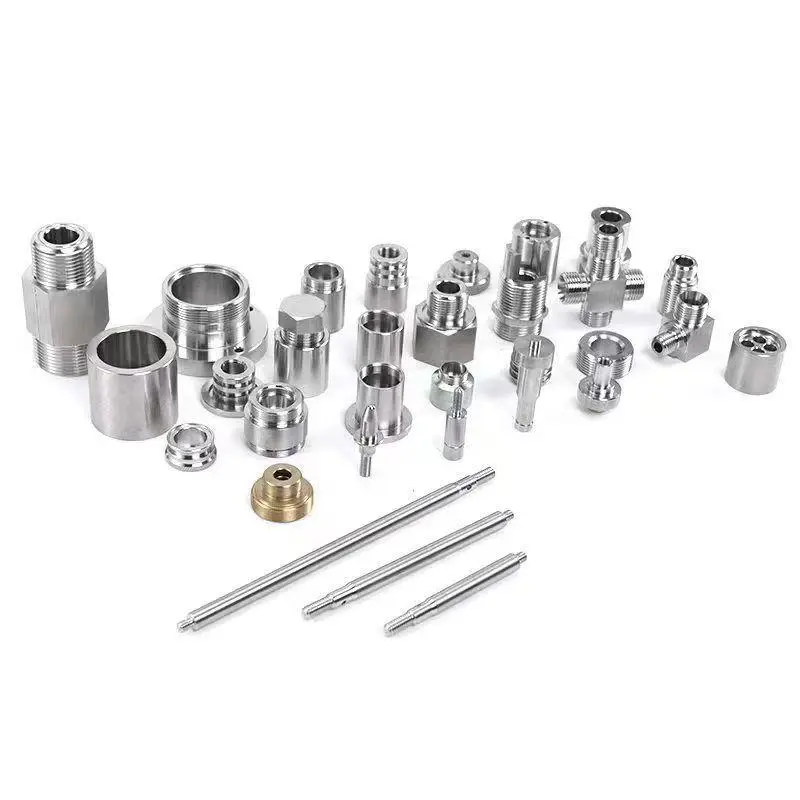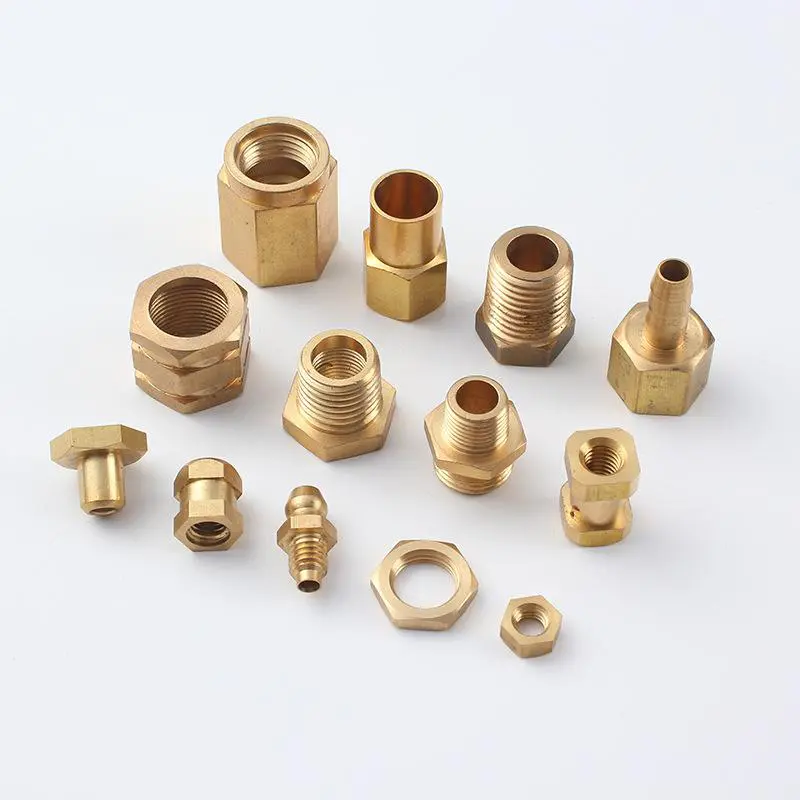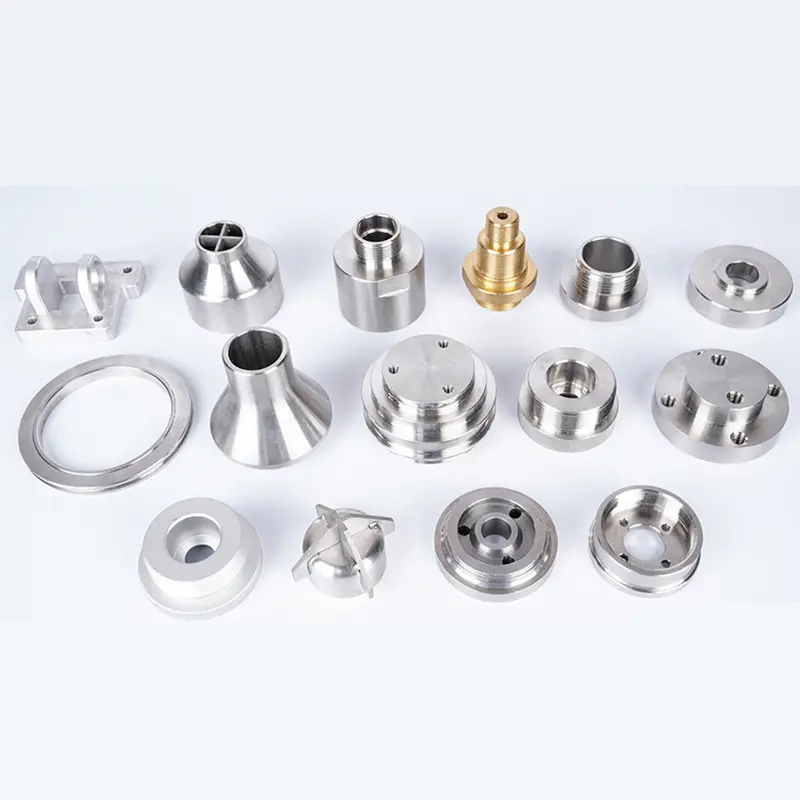CNC Swiss Machined Parts: Elevating Standards in Stainless Steel Manufacturing
Published Time:
2025-09-11
CNC Swiss Machined Parts: Elevating Standards in Stainless Steel Manufacturing
Table of Contents
- 1. Introduction to CNC Swiss Machining
- 2. What is CNC Swiss Machining?
- 3. Benefits of CNC Swiss Machining in Stainless Steel
- 4. Applications of CNC Swiss Machined Parts
- 5. Precision and Accuracy in Manufacturing
- 6. Choosing the Right CNC Machining Partner
- 7. The Future of CNC Swiss Machining Technology
- 8. FAQs About CNC Swiss Machined Parts
- 9. Conclusion
1. Introduction to CNC Swiss Machining
CNC Swiss machining has emerged as a game-changer in the world of manufacturing, particularly in the production of **stainless steel parts**. This advanced technique combines precision engineering with automated processes, offering numerous advantages over traditional machining methods. In a landscape where quality and efficiency are paramount, CNC Swiss machined parts stand out for their unparalleled accuracy and versatility.
2. What is CNC Swiss Machining?
CNC Swiss machining is a specialized form of manufacturing that employs computer numerical control (CNC) technology to produce intricate components from cylindrical bar stock. The process is characterized by the use of a **Swiss-style lathe**, which allows for complex shapes to be machined with high precision. Unlike conventional lathes, Swiss machining enables the workpiece to move through the cutting tool, facilitating the production of long, slender parts typically found in industries such as aerospace, medical, and automotive.
2.1 The Mechanism Behind Swiss Machining
The Swiss machining process utilizes a unique setup where the material is fed into the machine horizontally. As the bar rotates, various tools engage with it at precise angles, enabling the creation of **highly detailed features**. This method reduces the need for secondary operations, streamlining the manufacturing process and ensuring tighter tolerances.
3. Benefits of CNC Swiss Machining in Stainless Steel
The use of CNC Swiss machining for producing stainless steel components offers several distinct advantages:
3.1 Enhanced Precision and Quality
CNC Swiss machining provides exceptional precision, often achieving tolerances as tight as ±0.0005 inches. This level of accuracy is critical in industries where even the slightest errors can lead to costly failures.
3.2 Efficient Production Rates
With the capability to produce parts rapidly, the Swiss machining process significantly reduces lead times. The automated nature of CNC technology allows for continuous operation, maximizing productivity without compromising quality.
3.3 Versatility for Complex Designs
CNC Swiss machining is particularly well-suited for manufacturing **complex geometries**. The ability to incorporate multiple operations, such as milling and drilling, within a single setup minimizes handling and enhances overall efficiency.
3.4 Cost-Effectiveness
Although the initial investment in CNC Swiss machines may be higher than traditional lathes, the long-term savings in labor, material waste, and production time make it a cost-effective solution for many manufacturers.
4. Applications of CNC Swiss Machined Parts
CNC Swiss machined parts find applications across various industries:
4.1 Aerospace Industry
In the aerospace sector, components must meet stringent safety and performance standards. CNC Swiss machining ensures that parts such as **fittings, brackets, and housings** are manufactured with the utmost precision.
4.2 Medical Devices
The medical industry demands high-quality components that are both durable and reliable. CNC Swiss machining produces parts for surgical instruments, implants, and diagnostic equipment, ensuring they meet strict regulatory requirements.
4.3 Automotive Manufacturing
Automotive applications often require components that can withstand high levels of stress and wear. CNC Swiss machined parts are used in producing **valves, sensors, and fasteners**, contributing to the overall safety and efficiency of vehicles.
4.4 Electronics Sector
With the rise of smart technology, the electronics industry relies on precision components for devices ranging from smartphones to advanced computing systems. CNC Swiss machined parts play a crucial role in the manufacturing of **connectors, housings, and circuit boards**.
5. Precision and Accuracy in Manufacturing
Precision and accuracy are not just desirable qualities in manufacturing; they are essential. CNC Swiss machining excels in maintaining consistent quality across large production runs, ensuring that every part meets the required specifications.
5.1 Importance of Tolerances
In many applications, especially in the aerospace and medical sectors, tolerances define the performance of a component. CNC Swiss machines are capable of achieving the highest tolerances, crucial for parts that fit together in complex assemblies.
5.2 Quality Control Measures
Implementing strict quality control measures throughout the CNC Swiss machining process is vital. This includes regular calibration of machines, inspection of parts using coordinate measuring machines (CMM), and adherence to industry standards.
6. Choosing the Right CNC Machining Partner
Selecting a reliable CNC machining partner is crucial for ensuring the success of your projects. Here are some factors to consider:
6.1 Experience and Expertise
Look for a partner with extensive experience in CNC Swiss machining and a proven track record in your specific industry. Their expertise will enhance the quality of the parts produced.
6.2 Technology and Equipment
Ensure that the machining partner utilizes state-of-the-art CNC technology. Advanced machines with the latest software will provide better precision, faster turnaround times, and improved efficiency.
6.3 Quality Certifications
Verify that the machining partner holds relevant quality certifications, such as ISO 9001. These certifications demonstrate a commitment to quality and adherence to industry standards.
6.4 Customer Support
A good machining partner should offer excellent customer support, including clear communication and responsiveness to queries. This ensures that any issues can be resolved quickly.
7. The Future of CNC Swiss Machining Technology
The evolution of CNC Swiss machining technology continues to shape the manufacturing landscape. Emerging trends include:
7.1 Automation and AI Integration
The integration of automation and artificial intelligence (AI) in CNC machining processes is on the rise. These advancements can optimize production schedules, enhance predictive maintenance, and improve overall operational efficiency.
7.2 Sustainability in Manufacturing
As industries become more environmentally conscious, CNC Swiss machining is adapting to incorporate sustainable practices. This includes reducing waste, improving energy efficiency, and utilizing eco-friendly materials.
7.3 Advanced Materials
The demand for high-performance materials is growing. CNC Swiss machining is evolving to accommodate new materials, including composites and advanced alloys, further expanding its application possibilities.
8. FAQs About CNC Swiss Machined Parts
8.1 What types of materials can be used in CNC Swiss machining?
CNC Swiss machining can work with a variety of materials, including **stainless steel, aluminum, brass, bronze, and plastics**, making it versatile for different applications.
8.2 How does CNC Swiss machining differ from traditional machining?
CNC Swiss machining allows for higher precision and can produce more complex shapes in a single operation compared to traditional machining, which often requires multiple setups.
8.3 What is the typical lead time for CNC Swiss machined parts?
Lead times can vary based on the complexity of the part and the production volume, but CNC Swiss machining generally allows for quicker turnaround times compared to other methods.
8.4 Are CNC Swiss machined parts more expensive?
While the initial setup cost can be higher, the efficiency and reduced labor costs associated with CNC Swiss machining often result in lower overall costs, especially for high-volume production.
8.5 How can I ensure the quality of CNC Swiss machined parts?
Partnering with a reputable machining provider that adheres to strict quality control measures and relevant certifications is crucial to ensuring high-quality parts.
9. Conclusion
CNC Swiss machining is revolutionizing the manufacturing of stainless steel parts by offering unmatched precision, efficiency, and versatility. With its ability to produce complex geometries with tight tolerances, this technology is becoming indispensable across various industries such as aerospace, medical, and automotive. As the demand for high-quality components continues to grow, embracing CNC Swiss machined parts can elevate your manufacturing standards and position your business for future success. By partnering with experienced and technologically advanced machining providers, manufacturers can ensure that they are equipped to meet the challenges of the evolving marketplace.
NewsCenter
Beijing Pafinal Precision Machinery Co., Ltd.
Email:sales@pafinal.com

Address: No. 239 Huanhe South Road, Tianjin Pilot Free Trade Zone (Airport Economic Zone), Tianjin
中企跨境-全域组件
制作前进入CSS配置样式
sales@pafinal.com:
Whatsapp:
在线客服添加返回顶部
图片alt标题设置: PAFINAL
表单验证提示文本: Content cannot be empty!
循环体没有内容时: Sorry,no matching items were found.
CSS / JS 文件放置地




 2025-09-12
2025-09-12


